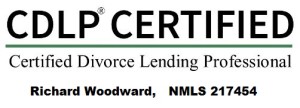
Divorce and your credit report
Divorce can ruin your credit report. Divorce is hard enough when you combine finances, it can sometimes lead to difficult situations. Often times these difficult situations are initiated by a soon to be ex-spouse making late payments on shared accounts.
These late payments appear on both of the account holders’ credit reports, despite divorce decrees. In order to avoid these issues, divorced couples should close or refinance all shared accounts if at all possible. Any shared credit cards, loans and mortgages will continue to be a joint responsibility until you work directly with the financial institution to resolve the issue. Again, your divorce decree does not remove your responsibility for the debt!
The following tips can help you avoid financial damages that will show up on your credit report and stay on your report for years to come.
Managing Shared Account s—It is not always possible to close or refinance all your shared debts after a divorce. Mortgages and large loans can be difficult to refinance quickly. In this situation, it is important that you and your ex work together closely to manage a shared account. Remember, your credit will be damaged if your ex cannot manage the shared account responsibly, and vice versa.
One of the easiest ways to manage a shared debt with an ex is by setting up an online account. This way, you can both easily login to check on the payment status of the loan. If you see that the debt has not been paid for the month, you can contact your ex or decide to pay the bill yourself in order to avoid a late payment and damage to your credit score. Encourage your ex to sign up for automatic payments that will deduct the bill from his or her accounts each month.
An ex with bad credit may decide to ruin his or her former spouse’s credit by not paying a shared account. These late payments will appear on both account holders credit report. It is advisable to continue working with your ex to manage your shared finances after a divorce when at all possible.
Recently divorced borrowers can build their independent credit history by opening up new credit card account. In order to do this you have to have decent credit scores. Using a credit account responsibly each month has a positive impact on your credit scores and will give you a few extra points towards your scores each month.
If your credit has been devastated by your divorce proceedings, my suggestion has always been to immediately open a secured credit card. This is a great way to reestablish credit even with horrible credit. Take action as soon as possible in reestablishing credit. Low credit scores cost you money.
Protecting Your Identity—It is a sad truth, but many couples go through messy divorces that leave both parties as bitter enemies in the end. When this is the case, it is important to consider the potential damage that a disgruntled spouse could do to your credit. Armed with your Social Security number, birth date, and other financial details, an ex could potentially steal your identity and cause significant damage to your credit.
After a contentious divorce, you should take a few steps to guard against any possible identity theft crimes before anything can happen. Sign up for credit monitoring that immediately alerts you to changes in your credit data. Be on the lookout for suspicious mail and signs that new accounts have been opened in your name. Change your online banking passwords and request that your account numbers are changed. If you suspect identity theft, contact the credit bureaus immediately and place a 90-day fraud alert on your credit reports.
Most importantly, simply be aware of the possible risk for identity theft. According to a 2013 identity theft survey by the Better Business Bureau, 50% of identity thieves turned out to be relatives, close friends, and neighbors of the victim. Denying that an ex-spouse could steal your identity may cause you to miss important early signs of fraud.

Richard Woodward is a Certified Divorce Lending Professional
It is always important to work with an experience mortgage professional who specializes in working with divorcing clients. A Certified Divorce Lending Professional (CDLP) can help answer questions and provide excellent advice. If you are considering a divorce or are in the process of going to a divorce, feel free to reach out to me I would be happy to address any questions or concerns that you might have.
Richard Woodward, NMLS 217454
Your Local, Direct, 5 Star Rated Mortgage Lender, Specialty Lending Manager
Office: (214) 945-1066
mortgageprosus.com/5-star-reviews
Service First Mortgage NMLS 166487
6800 Weiskopf Ave #200, McKinney, TX 75070
Licensed by the Texas Department of Savings and Mortgage Lending (SML) Mortgage Banker Registration. Service First Mortgage is an Equal Housing Lender. This is not an offer of credit or commitment to lend. Loans are subject to buyer and property qualification. Rates and fees are subject to change without notice. The views expressed on this site are those of the individual author and do not necessarily reflect the positions, strategies or opinions of Service First Mortgage or its affiliates.
This is for informational purposes only and not for the purpose of providing legal or tax advice. You should contact an attorney or tax professional to obtain legal and tax advice. Interest rates and fees are estimates provided for informational purposes only, and are subject to market changes. This is not a commitment to lend. Rates change daily – call for current quota















